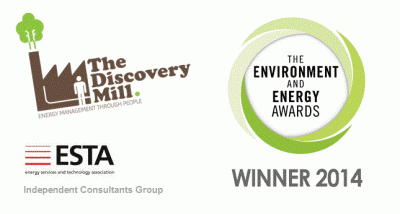CRC VIEWPOINT – THE VALUE OF COUNTING CARBON
With the recent announcement from Greg Barker on the new simplified CRC Energy Efficiency Scheme, our economist and environmental policy associate Emma Harding welcomes the proposed changes.
The move towards a simpler counting system
As an economist and an environmentalist it is sometimes difficult to find agreement in my views and certainly when it comes to carbon the economist within me wonders where the real value is for business in counting it? With policy makers and NGOs intent on making business report every last carbon bubble, it has seemed counting is rapidly becoming an end in itself with limitless discussions on methodologies, conversion factors, verification processes, boundaries and even professional qualifications. Yet ultimately unless all this counting results in actual change then isn’t it just counting for counting’s sake? As certainly the evidence so far suggests our collective obsession for counting carbon is failing to reduce our collective carbon emissions.
Thankfully I am not alone in this thought and for all those frustrated by the complexity and over lapping carbon reporting requirements we have reason to celebrate a small success. As the most recent consultation document from DECC on the proposed simplification of the CRC Energy Efficiency Scheme at last articulates a genuine understanding of the cost of carbon information to businesses and makes valuable concessions while leaving the door open for more.
Proposed key changes include: allowing businesses to participate in more ‘natural business units’; reducing the number of fuels reported from 29 to 4; ending footprint reports; removing the ‘90% rule’ and CCA exemption rules, and removing the overlap with the CCAs and the EUETS.
However, maybe one of the most significant simplifications is of course the abandonment (for now at least) of a cap and trade market in favour of unlimited fixed price allowances (in other words a straight forward tax). For me as an economist the most telling statement of this change is quietly made on page 33 where in paragraph 102 DECC finally, explicitly acknowledges theoretical economic efficiencies of tradable permit markets cannot be realised in the real world due to considerable information failures. They state echoing the criticisms levelled at the EUETS “while cap and trade can, in theory, achieve a given level of abatement at least cost; data limitations around coverage and abatement potential result in uncertainty about the level at which abatement should be set, risking price collapse and potentially missed cost effective abatement.” Halleluiah, welcome to real world were information is imperfect and that which we have is darned expensive to gather and manage!
Now don’t get me wrong, as an economist I am a full believer in the power of markets and ultimately which ever route is chosen for the CRC – cap and trade, unlimited fixed price allowances, or beefing up of the CCL – a key issue remains price and ultimately this is where policy makers (due in large part to information failures alluded to above) continue to fail – setting carbon prices too low. Whether in flat taxes such as the Climate Change Levy or in market schemes where over supply of credits depresses prices. The result being businesses remain in real danger of bearing all the costs of counting carbon against a carbon price that fails to incentivise the real change required.
Ultimately, however for all of us the whole carbon counting and pricing debate might be in danger of being academic as real world energy prices continue to rise due to good old fashioned supply and demand. Indeed the debate might fast change from – what is the correct carbon price required to drive orderly and timely structural economic change? To one where the future has arrived, we aren’t ready and businesses are saddled with a carbon tax on top of market prices that might on their own shift investment patterns, however, governments now faced with swathes of potential voters in energy poverty are tempted into using business carbon taxes as a way to fund consumer subsidies. The worst of all combinations – and at this point environmentalists have the right to say – you were warned.
So in the meantime, while we still can, let’s keep focused on further simplification for carbon counting ensuring a much better trade-off between counting and value so that savings in counting can be diverted to actually reducing carbon!
TO DISCOVER FOR YOURSELF
1. For more information or to contact Emma - please get in touch.
2. To receive the Green Spark monthly newsletter, or for more ideas and discussion, join our mailing list and/or subscribe to our RSS feed.


Comments